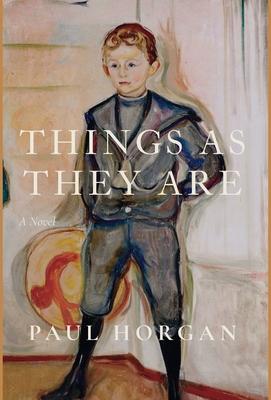In early-twentieth-century New York, a young boy enjoys a happy, ordinary childhood. Then, one by one, Richard sees his childhood securities crumble before the pitiless facts of a fallen world: the wanton cruelty of other children, the inconstancy of the "grown-ups" and inscrutability of their world, the overwhelming otherness of God, and the seemingly indomitable capacity in himself for sin. Things As They Are draws its thematic power from Richard's reflection that "children are artists who see and enact through simplicity what their elders have lost through experience. The loss of innocence is a lifelong process-the wages of original sin." As each pivotal event manifests, Richard must meet it with courage as much as faith, hope, and love, in order to safeguard his dignity and reach that maturity of stature for which he longs.
Told with a rare lyrical power and an unaffected poignancy, Things As They Are achieves a unity of robust realism and profound spiritual acuity which makes it clearly deserving of its place "among the most beautiful and moving American novels" (David McCullough).
